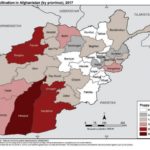Americans should welcome President Trump’s apparent willingness to speak with North Korea’s Kim Jong Un, but instead naysayers are warning of dire consequences, Jonathan Marshall explains.
Category: Foreign Policy
The Illusion of War Without Casualties
To Stop War, Do What Katharine Gun Did
Legendary whistleblower Daniel Ellsberg’s advice to stop current and future wars is simple: do what Katharine Gun did, writes Norman Solomon.
Raining on Trump’s Parade
Donald Trump has called for a military parade in Washington DC but a coalition of peace and justice groups hope to stop the parade before it happens, explains Margaret Flowers in this interview with Ann Garrison.
The National Endowment for (Meddling in) Democracy
The unwritten rule governing the NED’s activities is that the U.S. has an unqualified right to do unto others what others may not do unto the U.S., explains Daniel Lazare.
How Many Terms Till You’re a Tyrant Ripe for Regime Change?
In some cases, the hint that a country might be removing presidential term limits provides Washington sufficient cause to support a coup, but in other cases Washington celebrates presidents-for-life, observes Ted Snider.
Record Afghan Opium Crop Signals Violent Year for U.S. Forces
Is MSNBC Now the Most Dangerous Warmonger Network?
A recent study revealed that MSNBC’s coverage of ‘Russiagate’ vastly outweighs its coverage of other issues, such as the US-backed humanitarian crisis in Yemen, and the network’s refusal to correct the disparity could lead to dangerous conclusions, notes Norman Solomon.
Putin’s Electoral Manifesto
Russian President Vladimir Putin’s national address last week grabbed headlines for its proclamations of new weapons systems, but as significant in his speech was its domestic policy implications ahead of a March 18 election, Gilbert Doctorow explains.
Putin Claims Strategic Parity, Respect
Vladimir Putin’s announcement of new weapons systems to achieve nuclear parity was the result of the erosion of arms control regimes, such as the ill-advised U.S. withdrawal from the ABM treaty in 2002, Ray McGovern explains.


